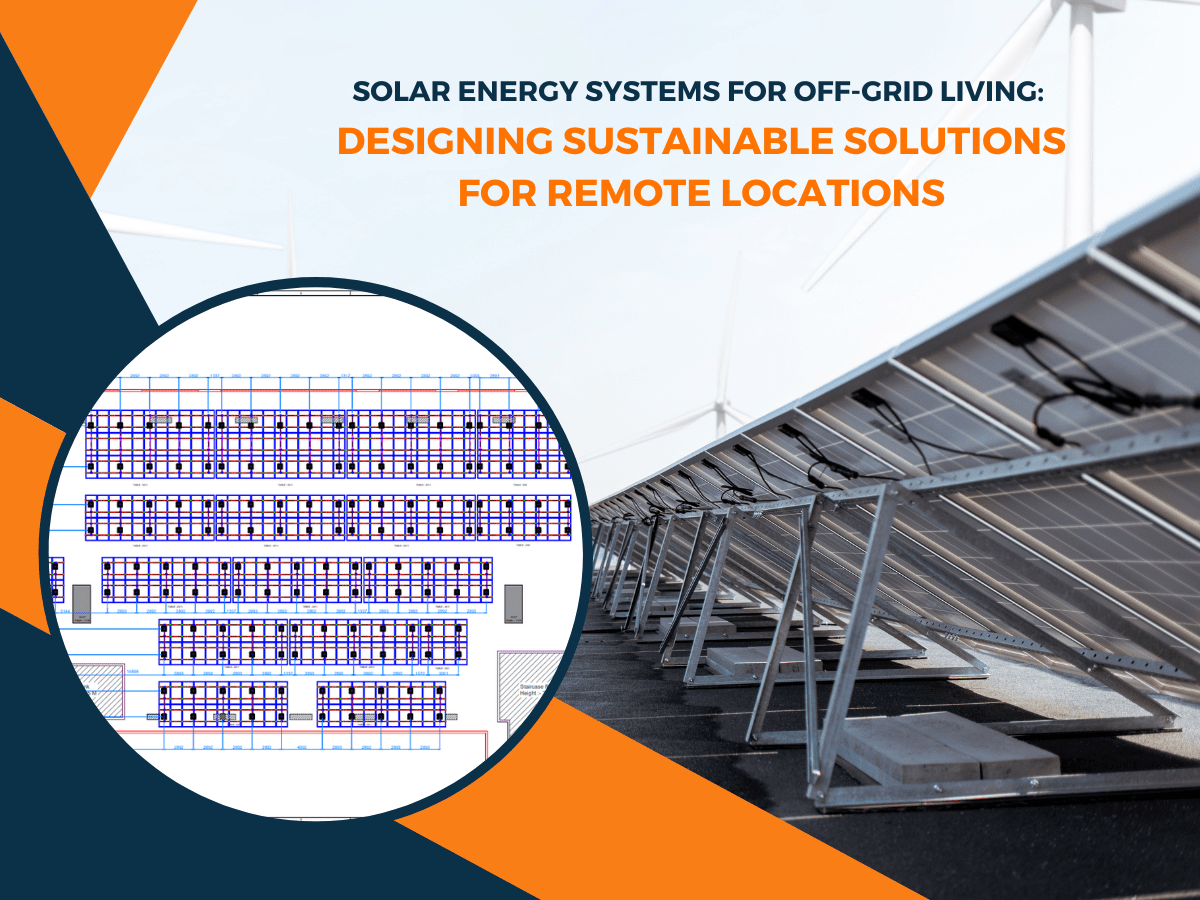Introduction:
Living in remote locations poses challenges in accessing a reliable energy source. However, advancements in solar technology have made off-grid living feasible and environmentally friendly. In this blog post, we will explore the design considerations for solar energy systems tailored to off-grid living. We will discuss the key components, challenges, and sustainable solutions that enable individuals and communities to thrive in remote areas with a reliable and clean energy supply.
1. The Off-Grid Living Challenge:
Living off the grid means being disconnected from the traditional electrical infrastructure. Remote areas often lack power lines or face high costs for grid extension. However, solar power offers an abundant and accessible energy solution for off-grid living.
2. Design Considerations for Off-Grid Solar Systems:
Designing solar energy systems for off-grid living requires careful planning and consideration of various factors:
- Solar Panels: Selecting the right solar panels involves assessing sunlight availability, orientation, and tilt angle. Durable and efficient panels are crucial for long-term performance.
- Energy Storage: Off-grid systems rely on batteries to store excess energy for nighttime or low-sun periods. Choosing suitable battery technology and capacity ensures a reliable energy supply.
- Charge Controllers: These regulate energy flow between solar panels and batteries, preventing overcharging and extending battery life. Advanced controllers optimize efficiency and provide system performance data.
- Inverters: Off-grid systems use inverters to convert solar-generated DC electricity into AC electricity for household appliances. Sizing the inverter correctly is essential.
- Energy Management Systems: Implementing such systems allows users to monitor and optimize energy consumption, prioritize loads, and utilize available energy efficiently.
3. Overcoming Challenges:
- Off-grid living poses unique challenges that can be addressed with the following solutions:
- Energy Demand and Load Management: Understanding energy patterns and implementing load management strategies optimize energy usage. Energy-efficient appliances and user education contribute to load management.
- Seasonal Variations: Off-grid systems must handle seasonal sunlight variations. This may require larger battery storage capacity and backup energy sources like generators or wind turbines.
- Maintenance and System Monitoring: Remote locations lack easy technical support, so remote monitoring and owner training are vital. Regular maintenance, including cleaning panels and inspecting connections, ensures system longevity and performance.
- Cost Considerations: Off-grid solar systems require upfront investment. However, long-term benefits like reduced energy costs and environmental impact make them cost-effective. Financial incentives can help offset initial costs.
Conclusion: Designing sustainable solar energy systems for off-grid living empowers individuals and communities in remote locations. By carefully considering design elements and overcoming challenges, off-grid solar systems provide a reliable and clean energy solution. Advancements in solar technology and successful case studies demonstrate the accessibility of sustainable off-grid living, enabling a self-sufficient and environmentally conscious lifestyle.

